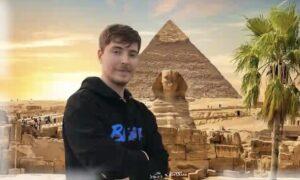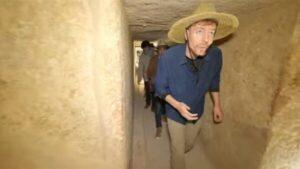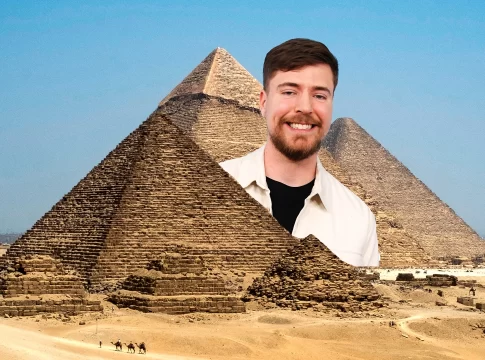
Despite earlier buzz suggesting that MrBeast had “rented” the pyramids for 100 hours, Egyptian authorities, including the Ministry of Tourism and Antiquities, clarified that while MrBeast had permission to film, the pyramids were never closed to the public. This minor controversy, however, only heightened anticipation for the video, which amassed over 37 million views within a day of its release.
Throughout the video, the YouTuber’s team is guided by the knowledgeable Ramy Romany, an Emmy Award-winning Egyptologist, who enriches their journey with insights and ensures compliance with site regulations. This collaboration highlights a responsible engagement with history, balancing curiosity with conservation.

The narrative is further deepened by appearances from esteemed experts, including Ashraf Mohie El-Din, director of the Giza Plateau, and the legendary Egyptologist Zahi Hawass. These figures provide an authoritative lens on the pyramids, dispelling myths—such as alien construction theories—with humor and pride in Egypt’s rich cultural heritage.
In a series of surprising reveals, MrBeast and his companions explore areas typically reserved for scholars, like the Tomb of Osiris, and even venture beneath the enigmatic Sphinx. Here, in a gesture of modern myth-making, MrBeast leaves behind a personal artifact—a gold figurine from his Lab Swarms collection, valued at $10,000—symbolically bridging past and present.
This venture, facilitated by carefully managed filming permissions, underscores Egypt’s ongoing efforts to promote tourism and cultural appreciation. The Ministry of Tourism and Antiquities emphasized that such projects illuminate the pyramids’ timeless allure, drawing global eyes while maintaining the dignity and integrity of these ancient treasures.

MrBeast’s exploration isn’t just a viral video—it is a catalyst for renewed interest in Egyptology. As noted by cultural historian Dr. Sarah Karim, “Digital platforms like YouTube are reshaping how the world engages with history, making it accessible and exciting for a new generation.”


